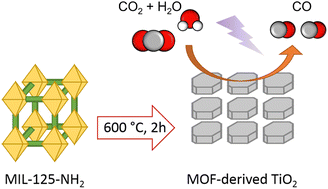
3rd Edition of Understanding Molecular Simulation
D. Frenkel and B. Smit, Understanding Molecular Simulations: from Algorithms to Applications, 3rd ed. (Academic Press, San Diego, 2023) doi: 10.1016/C2009-0-63921-0 Understanding Molecular Simulation explains molecular simulation from a chemical-physics and statistical-mechanics perspective. It highlights how physical concepts are used to develop better algorithms and expand the range of applicability of simulations. Understanding Molecular Simulation is (…)

Cover of Digital Discovery
M. V. Gil, K. M. Jablonka, S. García, C. Pevida, and B. Smit, Biomass to energy: A machine learning model for optimum gasification pathways Digital Discovery 2, 929 (2023) http://dx.doi.org/10.1039/D3DD00079F

Cover of ACS Central Science
K. M. Jablonka, A. S. Rosen, A. S. Krishnapriyan, and B. Smit, An Ecosystem for Digital Reticular Chemistry ACS Cent Sci 9 (4), 563 (2023) http://dx.doi.org/10.1021/acscentsci.2c01177

Biomass to energy: a machine learning model for optimum gasification pathways
M. V. Gil, K. M. Jablonka, S. Garcia, C. Pevida, and B. Smit, Biomass to energy: a machine learning model for optimum gasification pathways Digital Discovery (2023) doi: 10.1039/D3DD00079F Abstract: Biomass is a highly versatile renewable resource for decarbonizing energy systems. Gasification is a promising conversion technology that can transform biomass into multiple energy carriers (…)

Generating Adsorption Isotherms to Screen Materials for Carbon Capture
E. Moubarak, S. M. Moosavi, C. Charalambous, S. Garcia, and B. Smit, A Robust Framework for Generating Adsorption Isotherms to Screen Materials for Carbon Capture Ind. Eng. Chem. Res. (2023) doi: 10.1021/acs.iecr.3c01358 Abstract: To rank the performance of materials for a given carbon capture process, we rely on pure component isotherms from which we predict (…)

COFs for Photocatalysts
B. Mourino, K. M. Jablonka, A. Ortega-Guerrero, and B. Smit, In Search of Covalent Organic Framework Photocatalysts: A DFT-Based Screening Approach Adv. Funct. Mater. (2023) doi: 10.1002/adfm.202301594 Abstract Covalent organic frameworks (COFs) stand out as prospective organic-based photocatalysts given their intriguing optoelectronic properties, such as visible light absorption and high charge-carrier mobility. The “Clean, Uniform, (…)

Toward Superior Hydroisomerization Catalysts through Thermodynamic Optimization
J. E. Schmidt, B. Smit, C.-Y. Chen, D. Xie, and T. L. M. Maesen, Toward Superior Hydroisomerization Catalysts through Thermodynamic Optimization ACS Catal., 6710 (2023) doi: 10.1021/acscatal.3c00391 Abstract: The need to reduce the lifecycle greenhouse gas emissions of fuels and lubricants has renewed interest in hydroisomerization processes. Here it is shown how recognizing the signature of (…)

An Ecosystem for Digital Reticular Chemistry
K. M. Jablonka, A. S. Rosen, A. S. Krishnapriyan, and B. Smit, An Ecosystem for Digital Reticular Chemistry ACS Cent. Sci. (2023) doi: 10.1021/acscentsci.2c01177 Abstract: The vastness of the materials design space makes it impractical to explore using traditional brute-force methods, particularly in reticular chemistry. However, machine learning has shown promise in expediting and guiding (…)

MOF-based oxygen carriers with antioxidant activity resulting from the incorporation of gold nanozymes
X. Liu, N. P. Domingues, E. Oveisi, C. Coll-Satue, M. M. T. Jansman, B. Smit, and L. Hosta-Rigau, Metal–organic framework-based oxygen carriers with antioxidant activity resulting from the incorporation of gold nanozymes Biomater. Sci. (2023) doi: 10.1039/D2BM01405J Abstract: Blood transfusions are a life-saving procedure since they can preserve the body’s oxygen levels in patients suffering (…)

CO2 photoreduction to CO on MOF-derived TiO2
M. Garvin, W. A. Thompson, J. Z. Y. Tan, S. Kampouri, C. P. Ireland, B. Smit, A. Brookfield, D. Collison, L. Negahdar, A. M. Beale, M. M. Maroto-Valer, R. D. McIntosh, and S. Garcia, Highly selective CO2 photoreduction to CO on MOF-derived TiO2 RSC Sustainability (2023) Doi: 10.1039/D2SU00082B Abstract Metal–Organic Framework (MOF)-derived TiO2, synthesised through (…)